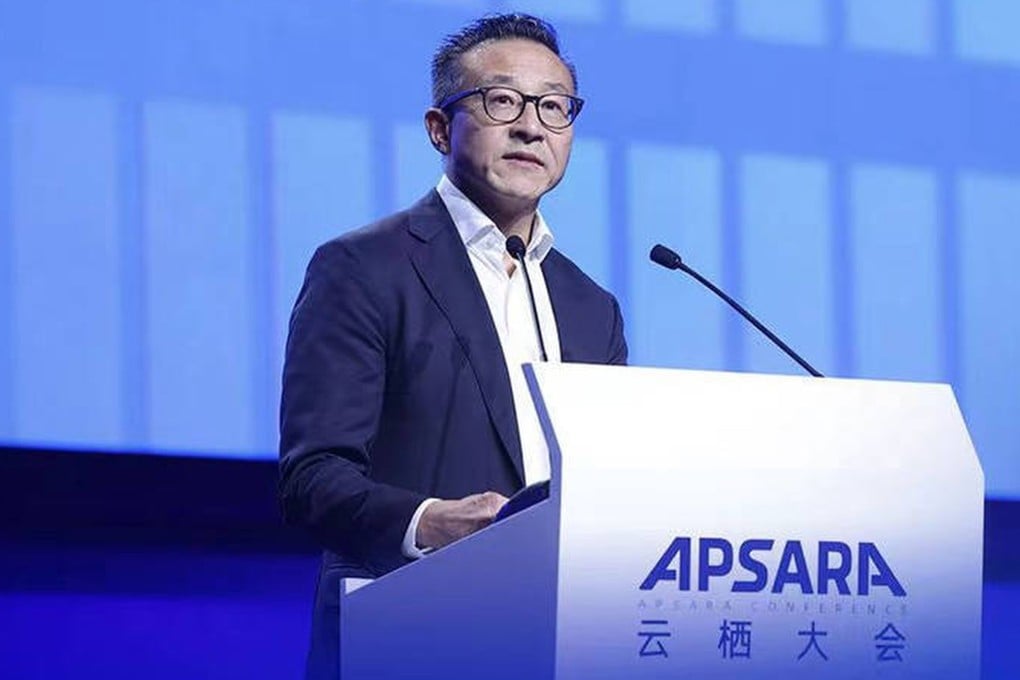Advertisement
Alibaba’s cloud unit now serves 80% of Chinese tech companies and half of country’s AI language model firms, group chairman Joe Tsai says
- Alibaba Cloud aims to turn AI into a huge productivity tool, ‘especially for small and medium-sized enterprises’, Tsai said at the Apsara Conference
- He also pointed out that Alibaba is the world’s first large-scale internet company to move all of its businesses to the cloud
Reading Time:3 minutes
Why you can trust SCMP
5

Ann Caoin Shanghai
Alibaba Group Holding’s cloud computing unit now forms an integral part of many Chinese technology firms’ operations and the country’s artificial intelligence (AI) development efforts, according to company co-founder Joe Tsai in his first public speech since he took over as chairman of the e-commerce giant last month.
“Currently, 80 per cent of China’s technology companies and half of [AI] large [language] model companies run on Alibaba Cloud,” Tsai said on Tuesday at the opening of the annual Apsara Conference in Hangzhou, capital of eastern Zhejiang province. The three-day tech event concludes on November 2.
“We aim to be the most open cloud in the era of AI,” he said. “We hope that through this cloud [platform], it will become easier and affordable for everyone to develop and use AI.”
Advertisement
Tsai indicated that it was the goal of Alibaba Cloud, which remains mainland China’s leading cloud infrastructure services provider, to turn AI into a huge productivity tool, “especially for small and medium-sized enterprises”.

Cloud computing technology enables companies to distribute over the internet a range of software and other digital resources as an on-demand service, just like electricity from a power grid. These resources are stored and managed inside data centres.
Advertisement
Advertisement
Select Voice
Select Speed
1.00x